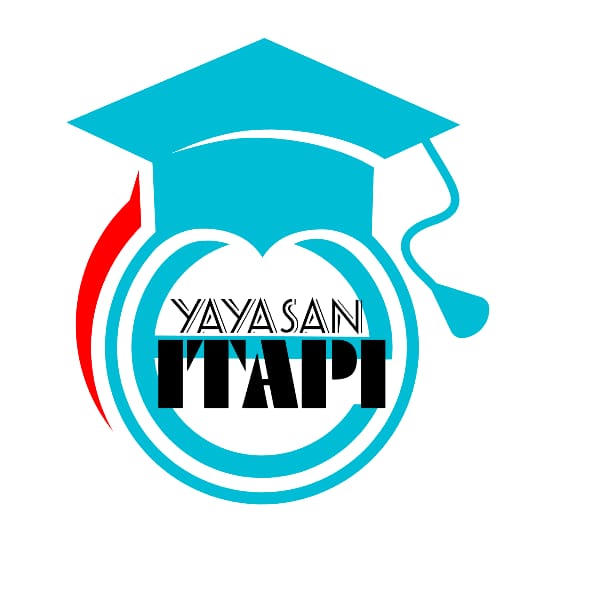The Influence of Self-Efficacy and Peer Conformity on Cheating Behavior
DOI:
https://doi.org/10.52187/rdt.v6i3.357Keywords:
cheating behavior, peer conformity, self-efficacyAbstract
This study aims to analyze the influence of self-efficacy and peer conformity on cheating behavior in Class X vocational high schools in Jakarta. This research applies a quantitative approach through survey methods. The population used consisted of 180 students, with a sample of 120 students obtained through the proportional random sampling technique. Data collection with a questionnaire using a Likert scale. The data analysis method IBM SPSS Statistics Version 26 was used in this study. The study findings indicate that the self-efficacy variable and the cheating behavior variable have a partial relationship, as evidenced by the t-value -12.080 > t-table value -1.658. The peer conformity variable shows a partial relationship with the cheating behavior variable, as evidenced by the t-value 11.292 > the t-table value 1.658. The simultaneous test results indicate that the self-efficacy variable and peer conformity have a simultaneous relationship with the cheating behavior variable, F-value 400.124 > F-table value 3.07. Implications of this study: (1) Cheating behavior variable have the highest percentage indicator, time 30%. This indicates that students cheat during certain periods, such as the last minutes before the exam paper is collected, when the teacher is busy, there is no exam supervisor, or when the teacher is not paying attention to them. (2) Self-efficacy variable has the highest percentage indicator in generality at 33.6%. This indicates that low self-efficacy among students affects their lack of focus in class due to a heavy homework load, difficulty in recovering from failure, and reluctance to try again. (3) The peer conformity variable was found to have the highest percentage indicator, namely individual agreement within the group, at 33.4%. That students are united in telling the teacher they forgot to do the homework, united in not doing the teacher's homework, or united in collaborating during the exam.
References
Abubakar, R. (2023). Pengantar Metodologi Penelitian (1st ed.). SUKA-Press UIN Sunan Kalijaga.
Afrianti, Y., Areva, D., & Sari, P. M. (2023). Pengaruh Disiplin Belajar, Konformitas Teman Sebaya, Kepercayaan Diri, Lingkungan Belajar dan Tekanan Orangtua Terhadap Perilaku Menyontek Siswa Kelas VIII SMP Negeri 25 Padang. Horizon, 3(1), 68–81. https://doi.org/10.22202/horizon.v3i1.6186
Anitasari, A., Pandansari, O., Susanti, R., Kurniawati, K., & Aziz, A. (2021). Pengaruh Efikasi Diri terhadap Perilaku Menyontek Siswa Sekolah Dasar selama Pembelajaran Daring. Jurnal Penelitian Ilmu Pendidikan, 14(1), 82–90. https://doi.org/10.21831/jpipfip.v14i1.37661
Chala, W. D. (2021). Perceived seriousness of academic cheating behaviors among undergraduate students: an Ethiopian experience. International Journal for Educational Integrity, 17(1), 1–15. https://doi.org/10.1007/s40979-020-00069-z
Dlya, Amelia and Usman, O. (2020). The Influence Of Self Efficacy, Peer Conformity, Parenting Style, and Academic Procrastination On Student Cheating Behavior). http://dx.doi.org/10.2139/ssrn.3512423
Fajrianti, N. (2022). Pengaruh Tingkat Efikasi Diri Terhadap Tingkat Perilaku Menyontek Pada Siswa SMP Swasta X. PSIKOSAINS (Jurnal Penelitian Dan Pemikiran Psikologi), 15(2), 136. https://doi.org/10.30587/psikosains.v15i2.4528
Hanum, D., & Karneli, Y. (2021). Implementasi Layanan Bimbingan Kelompok untuk Meningkatkan Self Efficacy Siswa Yang Berperilaku Menyontek. Prophetic Guidance and Counseling Journal, 2(2), 61–70. https://doi.org/10.32832/pro-gcj.v2i2.4752
Haryati, S., & Pratisti, W. D. (2023). Hubungan Konformitas, Kontrol Diri, dan Harga Diri dengan Perilaku Mencontek pada Siswa. Ideguru: Jurnal Karya Ilmiah Guru, 8(3), 517–524. https://doi.org/10.51169/ideguru.v8i3.506
Huda, M. A. (2025). Hasil Survei KPK Temukan 78 Persen Sekolah Mencontek, Ini Kata Mendikdasmen Abdul Muti. republika.co.id. https://news.republika.co.id/berita/svgqz7487/hasil-survei-kpk-temukan-78-persen-sekolah-mencontek-ini-kata-mendikdasmen-abdul-muti
Latifah, L. . R. S. R. . & V. V. (2024). Hubungan Efikasi Diri Dengan Perilaku Menyontek Peserta didik Kelas XII SMA Negeri 1 Pabedilan Kabupaten Cirebon. Innovative: Journal Of Social Science Research , 4(1), 6444–6454.
Nurjayanti, E. D., Widyarini, N., & Sari, A. S. (2023). Hubungan antara Self efficacy Akademik dengan Perilaku Mencontek (Cheating) Selama Masa Daring Siswa SMA X. Jurnal Psikologi, 1(1), 9. https://doi.org/10.47134/pjp.v1i1.1940
Perianto, E. (2021). Hubungan Antara Self Control Dan Self Esteem Dengan Perilaku Menyontek Pada Peserta Didik Di Sekolah Menengah Pertama Di Yogyakarta. Jurnal Bimbingan Dan Konseling Ar-Rahman, 7(1), 25. https://doi.org/10.31602/jbkr.v7i1.4884
Rahayu, D. E., & Harahap, S. Z. H. (2022). Self-Efficiency Analysis of Mathematics Learning for Class IV Students of SD Dharma Wanita Jl. Melati No. 30 Sempakata, Medan Selayang Academic Year 2021/2022. Jurnal Prosiding Seminar Nasional Pendidikan, Saintek, Sosial Dan Hukum (PSSH), 1, 1–13.
Rita, R., Iswinarti, I., & Siti Suminarti Fasikhah. (2024). Pengaruh konformitas positif terhadap kompetensi sosio-emosional yang dimediasi oleh self-efficacy pada santri remaja. Psychological Journal: Science and Practice, 4(1), 202–208. https://doi.org/10.22219/pjsp.v4i1.28795
Sovitriana, R., & Sianturi, H. C. (2021). Kematangan emosi dan konformitas teman sebaya dengan perilaku agresif pada remaja di kelurahan X Kabupaten Bekasi. Jurnal IKRA-ITH Humaniora, 5(2), 118–126.
Sugiyono. (2023). Metode Penelitian Kuantitatif Kualitatif dan R&D. Alfabeta.
Utami, A. A., Handayani, A., & Widiharto, C. A. (2022). Perilaku Menyontek Dari Perspektif Siswa SMA. Guiding World (Bimbingan Dan Konseling), 5(1), 12–18. https://doi.org/10.33627/gw.v5i1.704
Valdino, M., Sando, W., Lio, S., & Nagul, W. (2025). Pengaruh Konformitas Teman Sebaya Terhadap Perilaku Menyontek Siswa Kelas VII UPTD SMP Negeri 10 Kupang Tahun Pelajaran 2023 / 2024 ). 5(2), 0–4. https://doi.org/10.59818/jpi.v5i2.1288
Wahyuningtyas, P. F., & Indrawati, E. S. (2020). Hubungan Antara Konformitas Teman Sebaya Dengan Intensi Menyontek Pada Siswa Sma Kesatrian 2 Semarang. Jurnal EMPATI, 7(2), 522–526. https://doi.org/10.14710/empati.2018.21671


















